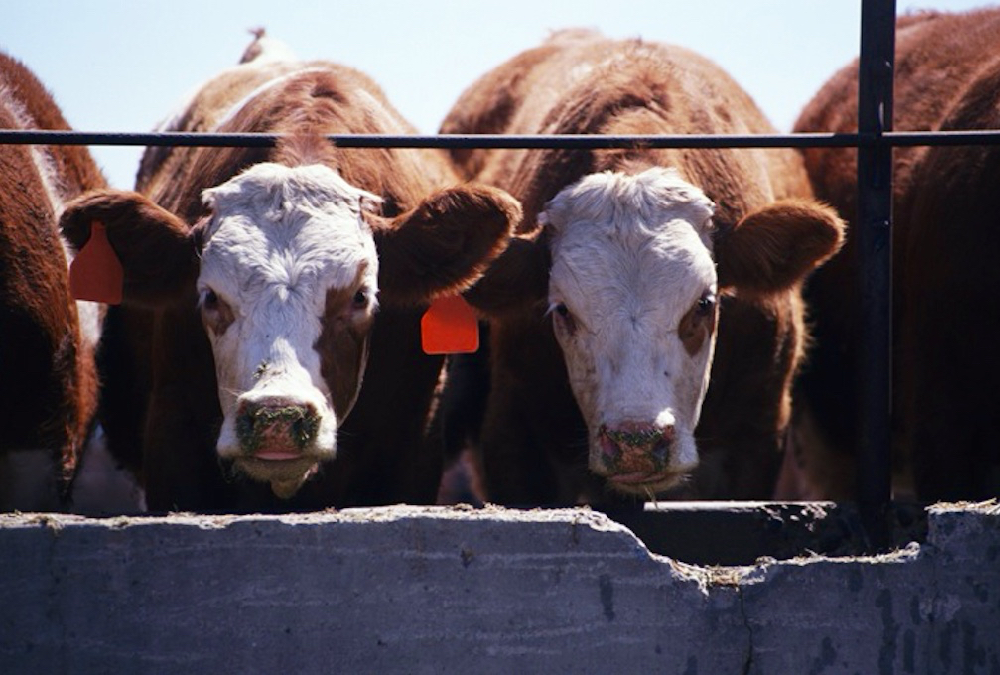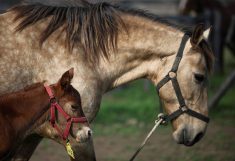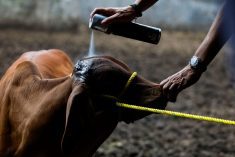A virus that produces symptoms similar to foot-and-mouth disease in pigs has surfaced in the U.S. Midwest, and Canadian hog producers are being advised to watch for it.
It is called Seneca Valley Virus, and although it is not a reportable disease and does not particularly limit production, its similarity to FMD can easily cause major concern.
“It creates a little bit of excitement when people see those typical vesicular disease lesions, so the little erosions around the coronary band of the pig’s foot and small blisters and erosion around the snout,” said swine veterinarian Dr. Egan Brockhoff.
Read Also

U.S. livestock: Profit-taking pressures cattle futures
Cattle futures on the Chicago Mercantile Exchange were weaker on Friday, with chart-based positioning a feature as the market continued…
“We want to make people aware that if they see the clinical signs, they should quickly contact their herd veterinarian and have them come out and quickly take samples and do a clinical assessment of the herd.”
Discovery of FMD in a herd would halt international trade, and it has done so in other countries. It is highly infectious and debilitating for pigs and cattle.
Seneca Valley Virus is a member of the same viral family, but one does not lead to the other.
The Minnesota Pork Board lists the following SVV clinical signs in sows, nursery pigs and finishers:
• Vesicles (small, fluid-filled sacs) and erosions on snouts and coronary bands.
• Acute lameness in a group of pigs.
• Ulcerative lesions on or around the hoof wall.
• Anorexia, lethargy and/or fever.
American hog producers are being told not to be complacent about SVV symptoms because that would potentially reduce surveillance and early detection of FMD, should it occur.
SVV is not new to North America. The American Association of Swine Veterinarians reports that cases were found in the late 1980s in several states, including Minnesota, Iowa, Illinois and California.
Brockhoff said producers who notice symptoms should temporarily halt shipment until a veterinarian can sample and confirm the type of virus involved.
barb.glen@producer.com















